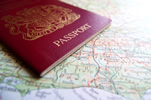- Home » Emigration Guides » Canada » Education » Schools In Canada
Schools In Canada
 Schools In Canada
Schools In Canada
The Canadian government requires every child to attend school until they are 16 years old (or 18 in Ontario and New Brunswick provinces). Depending on the province, children are required to begin their schooling at age 5 to 7. School starts each year in September after Labour Day and runs until the end of June. Around 90 per cent of Canadians have a high school diploma, and one in seven go on to complete an undergraduate degree at university or college.
Primary and secondary education, known as K-12, varies slightly from province to province. Ontario has two levels of kindergarten, a junior and senior level, as an example. Only around 8 per cent of Canadian students attend private schools, and most of these are located in the major cities like Vancouver and Toronto. Naturally, the quality of education and the school facilities in Canada's elite private academies are superior to those of its public schools.
Canadian public schools, however, are widely regarded as very good. They are free for all students to attend, as the operating costs of public schools are covered mainly by taxes and government subsidies. All public school teachers must be trained at university and licensed by the government to maintain a standard of quality throughout the country.
In high school, students can begin to tailor their education somewhat towards a career path by choosing a number of elective courses in specific skills. Canada also strives to integrate a certain amount of culture and ethnic sensitivity into its public schools through courses that showcase the arts and traditions of the many indigenous cultures of Canada.
Emigrants who have children will have to prepare them to attend school in Canada, whether private or public. All students must be vaccinated against a handful of serious diseases, such as polio and mumps, and have the records to prove it. Students must also be able to speak English or French at a certain level in order to attend school.
While the Canadian government does offer special language courses to supplement a child's acquisition of English, it is mainly up to the parents to provide them with the basic knowledge of English. Each province has its own rules regarding language, and often this issue is dealt with on a case-by-case basis.


